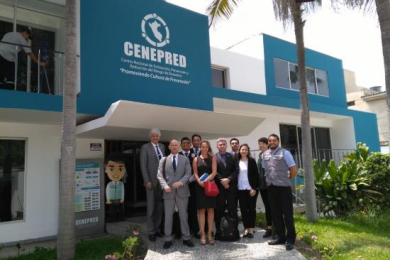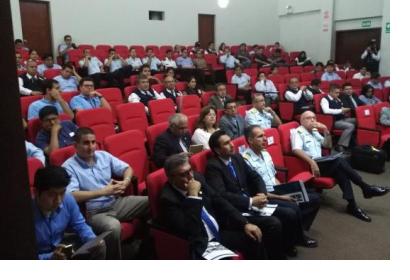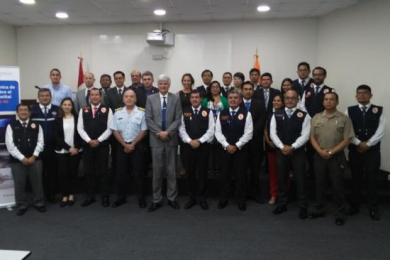As part of it advisory support activities, UN-SPIDER is carrying out out a Technical Advisory Mission (TAM) to Peru from 1 to 5 April to evaluate the current and potential use of space-based information in all aspects of disaster management. Based on exchanges with a wide range of stakeholders, UN-SPIDER will provide recommendations as to how to strengthen the use of space-based information in disaster risk management and emergency response in the country.
The team of experts led by UN-SPIDER is conducting multiple activities and institutional visits in Lima. The team is comprised of eight experts from UN-SPIDER; the German Aerospace Centre (DLR); the Argentinian National Space Activities Commission (CONAE); the Mexican Space Agency (AEM); the Agustin Codazzi Geographic Institute of Colombia (IGAC); the Santa Maria Federal University of Brazil; and the Andean Community (CAN). CONAE, AEM and IGAC are UN-SPIDER Regional Support Offices.
The mission includes meetings with key stakeholder organizations to take note of the availability of geospatial information, current use of space-derived information, data sharing practices, applications of geospatial information, challenges and constraints, existing capacity and needs, institutional linkages and coordination and applications to strengthen disaster risk reduction and emergency response.
The team will conduct bilateral discussions with organizations such as the Peruvian Space Agency; the National Center for the Estimation, Prevention and Reduction of Disaster Risk (CENEPRED); the Geophysical Institute of Peru (IGP), Directorate of National Hydrography; the Ministry of Housing and Sanitation, Ministry of the Environment; the Japanese Peruvian Center for Seismic Research and Disaster Mitigation (CISMID) and many more.
On the fifth day, the mission team will compile and present their observations and recommendations to high-level officials of all agencies. UN-SPIDER will continue to work with Peru to implement recommendations of the technical advisory mission.



